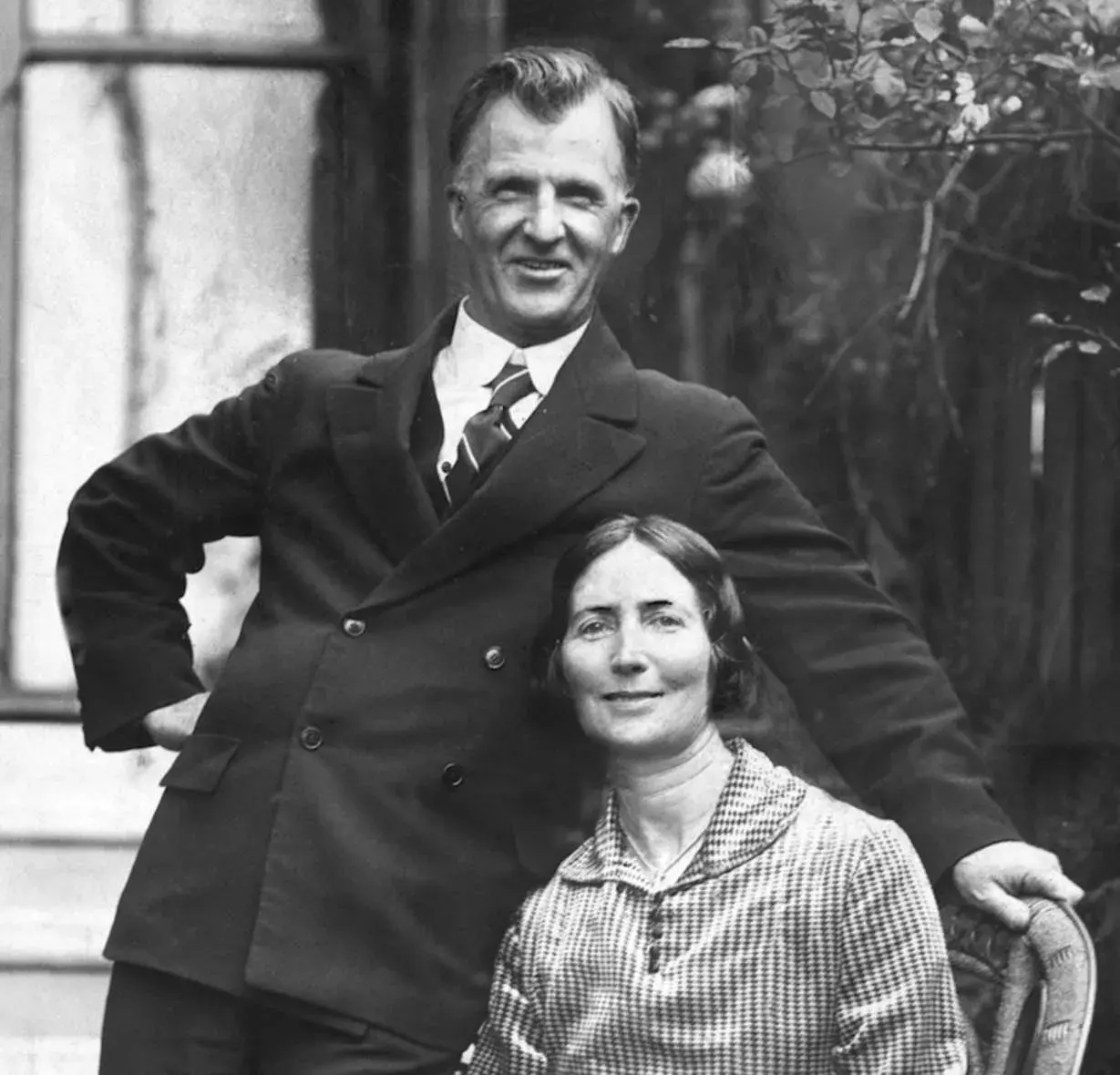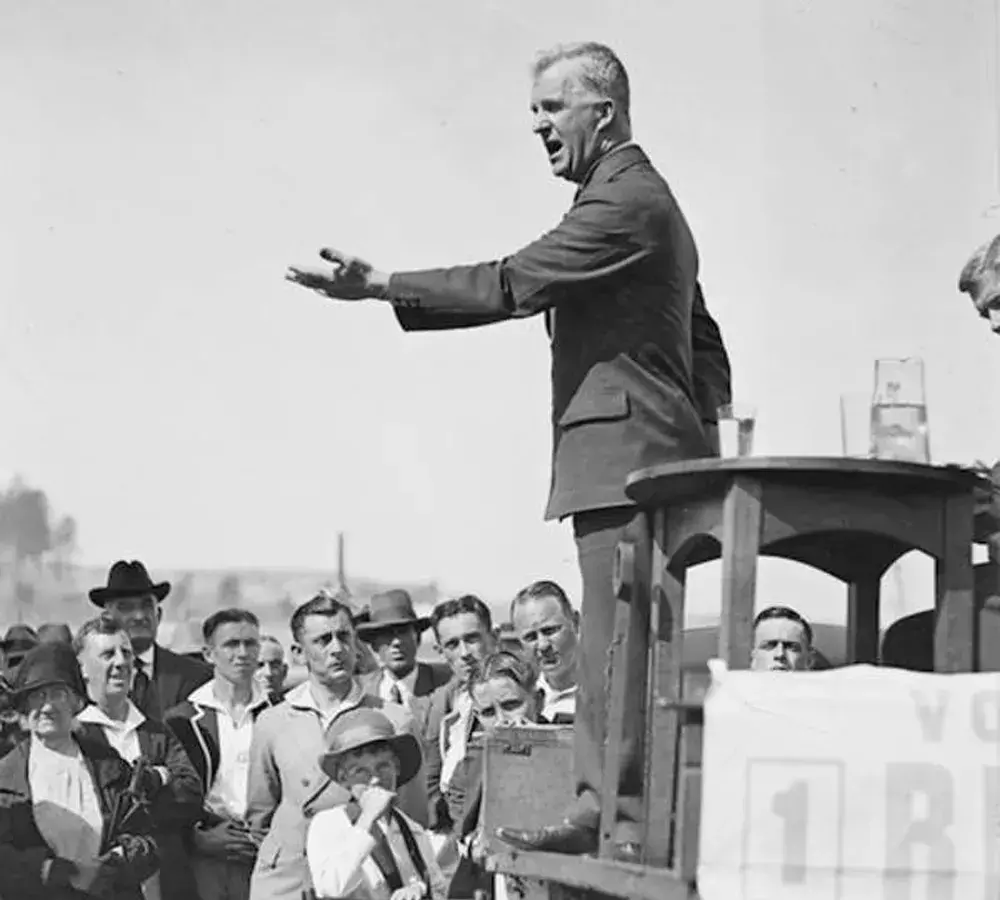JAMES SCULLIN
Member of the Privy Council (1930)
James Scullin became Australia’s ninth prime minister when the Labor Party won office, replacing the Nationalist Party government led by Stanley Melbourne Bruce.
18 September 1876
Trawalla, Victoria
28 January 1953
Melbourne, Victoria
Sarah Scullin
Australian Labor Party
Photo: nla.pic-vn6292471
About
James Scullin was the first Australian born, and Catholic, Labor prime minister. His family's recollections of hard times in their native Ireland, combined with his own witnessing of poverty in rural Victoria, contributed to his views on the active role of government in improving the lives of citizens.

Prime Minister James Scullin and wife Sarah, October 1929.
Photo: News Ltd/Newspix
Scullin had lived through the depression of the 1890s, and could see the warning signs of the looming Great Depression, but he was largely unable to deflect its impact on the Australian people.
James Scullin was a skilled debater in an era in which it was greatly admired. It was in part this gift which brought him to the attention of the Labor Party, which first nominated him to stand in the seat of Ballarat against Prime Minister Alfred Deakin in the 1906 election.
Scullin ran a grocer’s shop in Ballarat and worked as an organiser for the Australian Workers’ Union. In 1922, Scullin won the seat of Yarra and in 1928 he became leader of the Labor Party and prime minister after the 1929 election. The crash of the New York Stock Exchange, which occurred in October 1929 and led to the Great Depression, came just two days after Scullin became prime minister.
The inability of the Scullin Government to respond to the Depression decided its fate and led to a split in the Labor Party. Scullin’s path to becoming prime minister had been rapid and culminated in a glorious election victory, with an additional railway car required to contain the mass of flowers presented to him on arrival in Canberra. In office little went right, but Scullin would be remembered as a man of decency and integrity.
MILESTONES
Telephone service arrives
Australia and Britain are linked by a radio telephone service on 30 April 1930 for the first time. British Prime Minister Ramsay MacDonald makes the first phone call to Australian Prime Minister James Scullin.
First Australian-born Governor-General
Sir Isaac Isaacs is appointed as Governor General on 21 January 1931, against the wishes of King George V who felt that a ‘local man’ could not remain above national politics. Prime Minister Scullin told the King he would be prepared to hold a referendum or fight an election on the issue.
Scullin meets state premiers
Australian state premiers meet with Prime Minister James Scullin on 10 June 1931 to address the issue of rising unemployment and the prospect of economic collapse. The Premiers’ Plan promotes ‘equality of sacrifice’ to the Australian people.
Establishing the ABC
A bill to establish the Australian Broadcasting Commission is introduced into Parliament in 1931 and later passed by the Lyons Government on 9 March 1932.
360° VIEW
Parliament
James Scullin won a historic victory in the 1929 federal election, in which Prime Minister Stanley Bruce lost his own seat. However Labor’s dominance in the lower house was in stark contrast to its position in the Senate, where 29 Opposition senators greatly outnumbered the seven Labor senators. The Scullin Government’s legislative program aimed at alleviating the economic crisis was severely hampered by the Opposition controlled Senate, although the Senate did stop short of refusing supply. Scullin was urged by many in his party to push for a double dissolution election. Scullin, however, continued to hope that the growing financial crisis would prompt the Opposition to put national interest ahead of all other considerations.

Photo: NLA.pic-vn6266680

